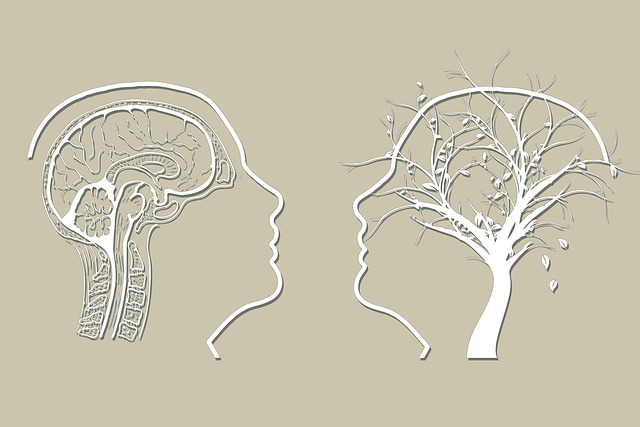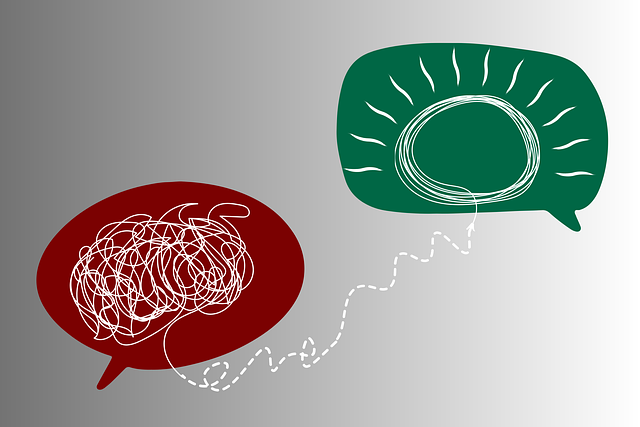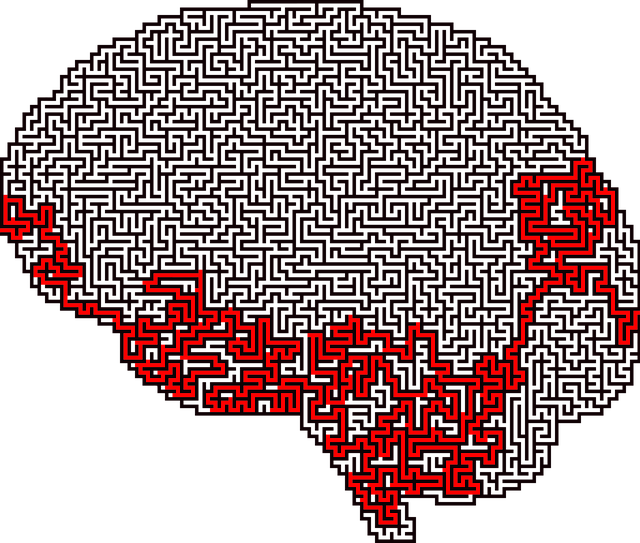Resilience-building exercises through online therapy platforms foster mental fortitude using mindfulness and self-awareness. These activities enhance stress management and adversity overcoming, promoting "mind over matter" techniques for calm focus. RFM (Relational, Emotional, Cognitive) integration in online sessions strengthens therapist-client connections, enhancing active listening and empathy. Tailored exercises and regular risk assessment improve mental health outcomes, making traditional therapy more accessible and effective. Engaging RFM exercises, including guided meditations, are designed to address diverse client needs, while strategic planning, personalized approaches, and training ensure effectiveness. Measuring impact through evaluation ensures clients receive tailored care, aligning with Mental Health Policy goals for improved online therapy experiences.
In today’s digital era, online therapy has become a vital resource for mental health support. One innovative approach gaining traction is the implementation of Resilience-Building Exercises (RFM) within these virtual sessions. This article explores how RFM can empower clients and therapists alike. We delve into the core principles, benefits, and practical strategies for integrating RFM into online therapy, with a focus on designing effective exercises and overcoming challenges. Discover how this method enhances client outcomes and revolutionizes mental health care.
- Understanding RFM: The Core Principles of Resilience-Building Exercises
- Benefits of Incorporating RFM into Online Therapy Sessions
- Designing Effective RFM Exercises for Virtual Settings
- Implementing RFM: Strategies for Success and Overcoming Challenges
- Measuring Impact and Enhancing Client Outcomes through RFM
Understanding RFM: The Core Principles of Resilience-Building Exercises

Resilience-building exercises, a cornerstone of therapy for online therapy platforms, are designed to help individuals navigate and overcome challenges by fostering mental fortitude. These exercises are rooted in core principles that empower users to develop self-awareness exercises, enhancing their ability to manage stress and adversity. Through techniques that promote mindfulness over matter principles, participants learn to approach difficult situations with a calmer, more focused mindset.
Implementing these resilience-focused activities requires a strategic approach, often incorporating elements from public awareness campaigns development to educate and engage users. By regularly practicing mind over matter principles, individuals can build resilience, ensuring they remain steadfast in the face of life’s ups and downs. This proactive approach to mental well-being is transforming traditional therapy methods, making them more accessible and effective for a wide range of users seeking online therapy solutions.
Benefits of Incorporating RFM into Online Therapy Sessions

Incorporating RFM (Relational, Emotional, and Cognitive) into online therapy sessions offers a multitude of benefits, enhancing the therapeutic experience for both clients and therapists. By integrating relational aspects, therapists can foster deeper connections with their clients, creating a safe space that encourages vulnerability and trust. This is particularly crucial in the digital realm, where building rapport and understanding non-verbal cues can be more challenging. RFM promotes active listening and empathy, which are essential components of effective online therapy.
Additionally, incorporating compassion cultivation practices within RFM can significantly improve clients’ mental health outcomes. Resilience-building exercises, tailored to individual needs, empower clients to manage stress, anxiety, or trauma. These strategies enable individuals to develop coping mechanisms, fostering adaptability and emotional stability. Furthermore, regular risk assessment for mental health professionals ensures the safety and well-being of both clients and therapists, facilitating a supportive and constructive therapeutic environment in the online setting.
Designing Effective RFM Exercises for Virtual Settings

In the realm of online therapy, designing effective Resistance, Flexibility, and Mindfulness (RFM) exercises is an art that requires careful consideration to adapt traditional resilience-building techniques for virtual settings. With the increasing demand for digital mental health services, therapists must create engaging and accessible activities that cater to a diverse range of clients, often facing unique challenges in their daily lives. The goal is to foster emotional well-being promotion techniques by leveraging the power of RFM principles in a virtual environment.
Virtual platforms offer both opportunities and constraints when implementing resilience-building exercises. Therapists can utilize interactive tools and multimedia resources to create dynamic sessions that incorporate mindfulness practices, helping clients manage stress and anxiety. For instance, guided meditation videos, breathing exercises, or even virtual nature walks can be incorporated to encourage ‘mind over matter’ principles. By adapting these techniques for online therapy, professionals ensure accessibility and convenience while still promoting effective resilience-building strategies for their clients.
Implementing RFM: Strategies for Success and Overcoming Challenges

Implementing RFM (Resilience, Flexibility, and Mindfulness) exercises involves strategic planning and tailored approaches to ensure success. For mental health professionals offering online therapy, integrating RFM into sessions can enhance client outcomes significantly. Firstly, assess each client’s unique needs and strengths; this personalized approach ensures that exercises are relevant and impactful. Incorporate a variety of techniques like guided meditation, breathing exercises, and cognitive reframing, allowing clients to develop tools they can access anywhere, anytime. Flexibility is key; adapt exercises based on individual progress and comfort levels.
Overcoming challenges requires a comprehensive strategy. Mental health professionals should consider regular training in RFM practices to stay informed and effective. Additionally, integrating these techniques into existing therapy models, such as cognitive-behavioural therapy (CBT), ensures a seamless transition for clients. Addressing potential stigma associated with mental illness can be mitigated through open conversations during sessions. The Risk Assessment for Mental Health Professionals plays a crucial role in tailoring interventions effectively while promoting client safety and well-being, especially when engaging in online therapy platforms. Moreover, advocates for Mental Illness Stigma Reduction Efforts should recognize the power of RFM in fostering inclusive and supportive digital environments.
Measuring Impact and Enhancing Client Outcomes through RFM

Measuring the impact of Resilience-focused exercises (RFM) is a crucial step in enhancing client outcomes, particularly within the realm of online therapy. By employing robust evaluation methods, therapists can assess the effectiveness of RFM techniques and tailor their approach to individual needs. This data-driven approach ensures that clients receive personalized care, which is essential for addressing various mental health concerns, including anxiety relief.
Through regular assessments, therapists can track progress, identify areas of improvement, and modify treatment plans accordingly. This iterative process not only improves coping skills development but also aligns with the broader goals of Mental Health Policy Analysis and Advocacy, ensuring that RFM practices are evidence-based and effective. Such insights empower therapists to deliver transformative experiences, fostering resilience in clients and significantly improving their overall mental health and well-being.
Resilience-building exercises (RFM) offer a powerful tool for enhancing online therapy sessions, fostering client growth, and improving overall mental well-being. By integrating RFM principles, therapists can create engaging virtual environments that promote resilience, adaptability, and emotional strength. This article has explored the core concepts of RFM, its benefits in online therapy, effective exercise design, implementation strategies, and measurement techniques. Embracing these practices enables professionals to provide innovative, impactful, and accessible care for clients navigating various challenges in today’s digital era, ultimately transforming lives through enhanced resilience.












